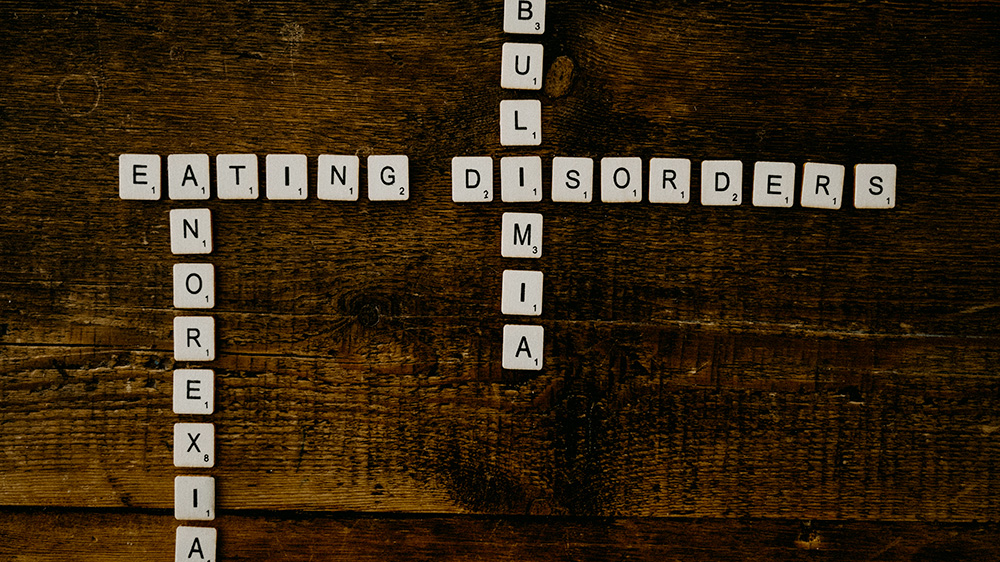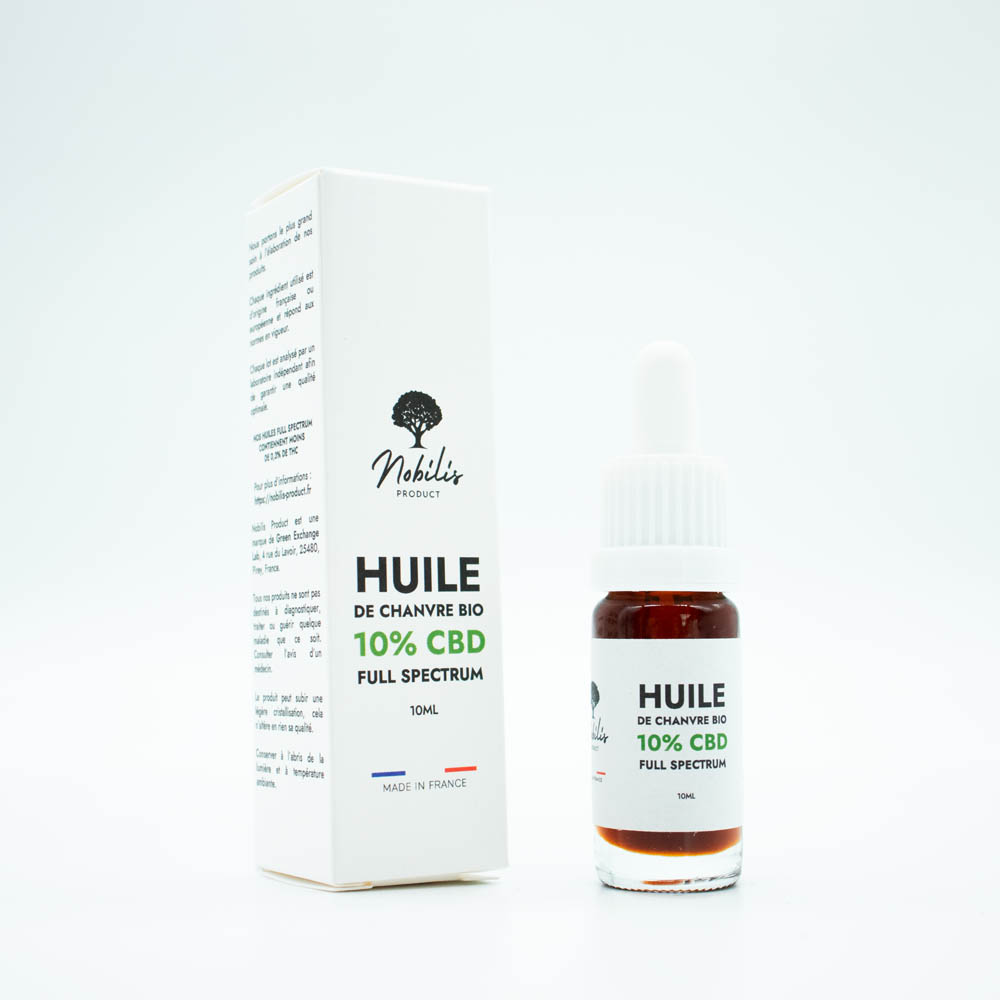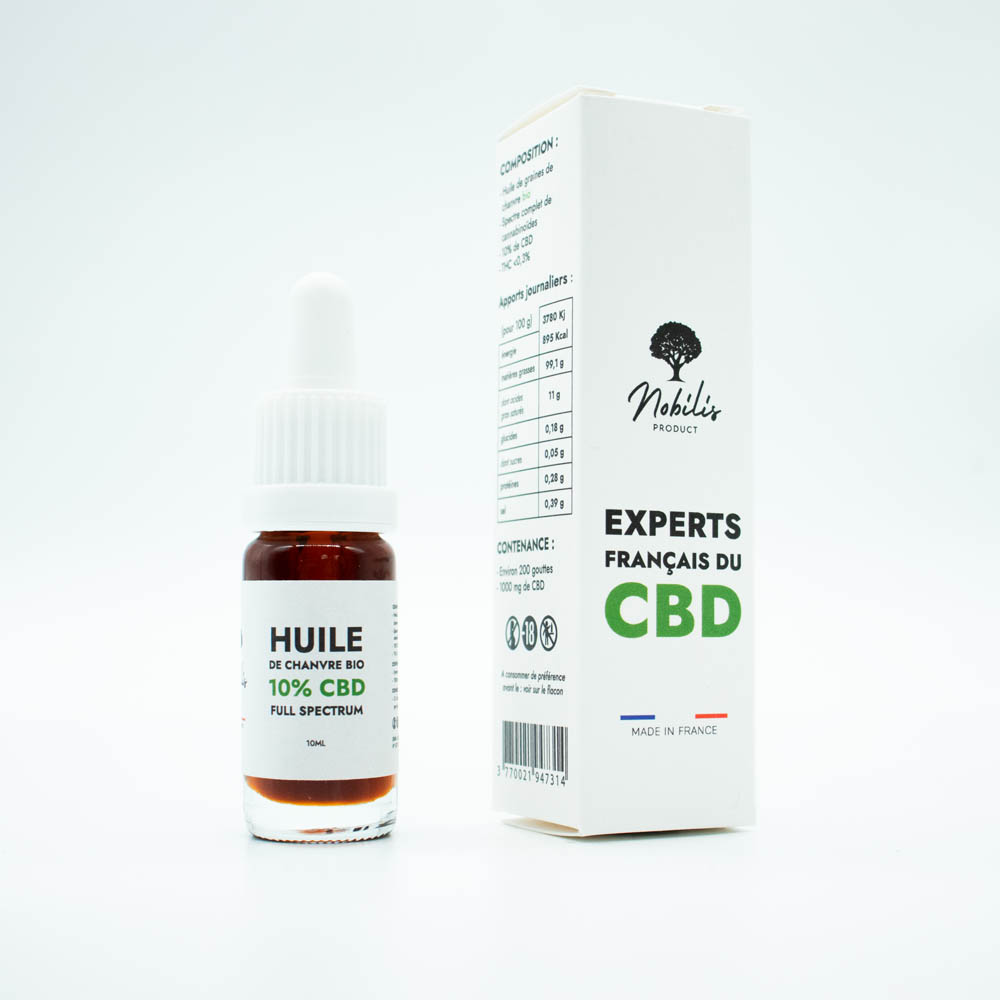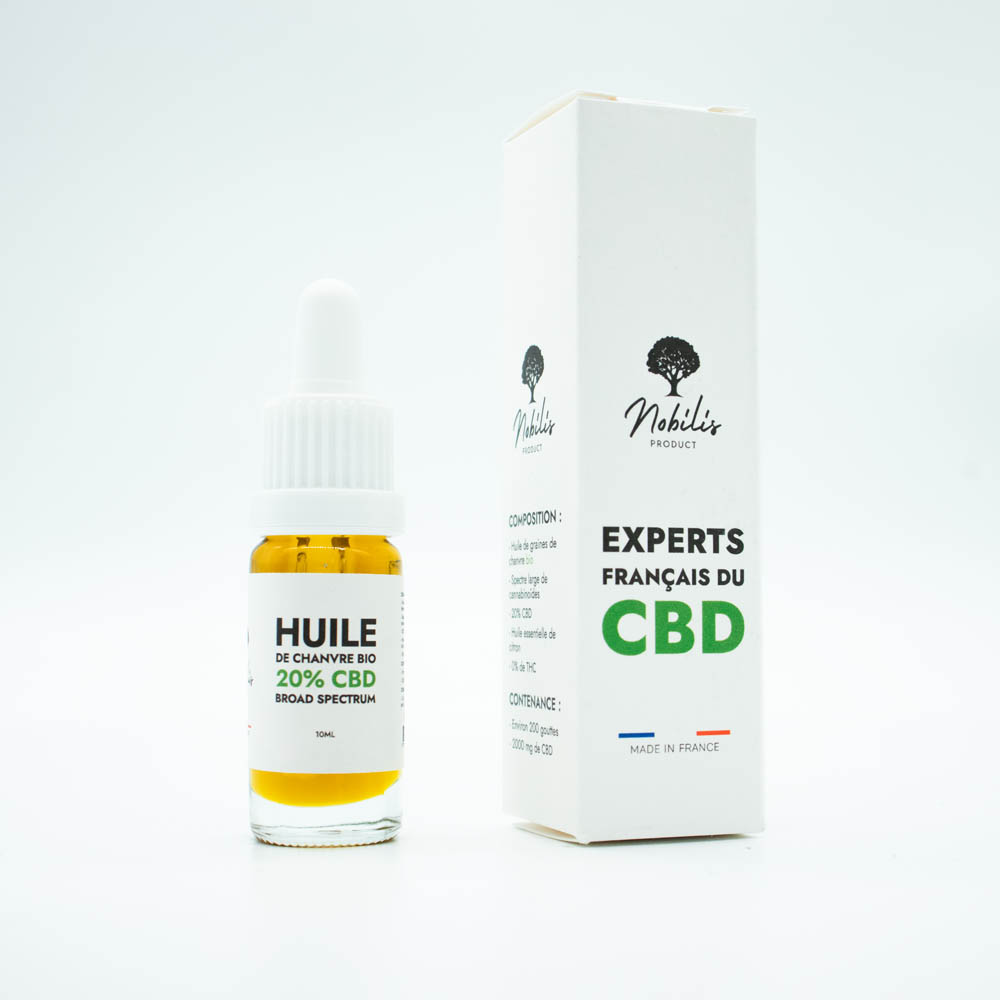As is the case with many psychiatric illnesses, there is no specific no specific treatment for eating disorders. Most often, patients are prescribed antidepressants or anxiolytics. In addition to aggravating side-effects, they are not not necessarily effective and are rarely a long-term solution.
Lately, research has been focusing on the link between cannabidiol (CBD) and eating disorders. Here's a roundup of the studies published on the subject, along with our advice on how to incorporate CBD into your routine should you wish to use it.
Table of contents
Eating disorders: definitions, symptoms and treatments
Not to be confused with a temporary loss of appetite or a (healthily motivated) desire to go on a diet, eating disorders refer to an abnormal and highly conflicted relationship with food and the body. It's a serious condition that requires the help of a healthcare professional.
The three most common types of CAT
According to the American bible of psychiatry, the Diagnostic and Statistical Manual of Mental Disorders (aka DSM), there are three main types of CAT [1]:
- Anorexia nervosa (or anorexia nervosa) Intentional and obsessive weight loss that leads the person to ingest a minimum of calories;
- Bulimia Bulimia nervosa: manifests itself in the form of attacks during which the person ingests an inordinate quantity of food before purging, either by inducing vomiting or by consuming laxatives. Most anorexics are also bulimics;
- Binge eating disorder Binge eating disorder (BED): recurrent, uncontrollable episodes of binge eating, with no purging process. In concrete terms, the person eats without hunger until he or she experiences stomach pain or physical discomfort.
In addition to abnormal mealtime behavior (avoidance, rejection of certain foods, inventory of calories ingested, etc.), eating disorders are associated with various symptoms such as :
- Excessive and rapid weight loss or gain;
- An inordinate preoccupation with physical appearance;
- And abrupt mood swings.

Origins and impact on quality of life
The origins of these disorders are multifactorial: psychological vulnerability, family and social environment... A "nothing" can trigger the disease, which usually manifests itself gradually.
Whatever the case, suffering from an OCD substantially affects quality of life. In fact, according to specialists [2], more than two-thirds of patients also suffer from :
- Mood disorders (over 40%) ;
- Anxiety disorders (over 50%) ;
- Self-harm, suicidal thoughts (over 20%);
- And use substances (over 10%).
Anorexia and bulimia can also lead to sleep disorders, chronic fatigue and digestive problems, as well as loss of bone density, hair loss and skin discoloration.
What about treatments?
As we've already mentioned, binge eating disorder is a serious psychiatric illness that needs to be treated by a healthcare professional. This may be a general practitioner, a psychologist, a psychiatrist or a nutritionist.
In any case, several approaches are possible, depending on the disorder, the patient's history and the severity of symptoms. Most often, antidepressant treatments are recommended to combat the anxiety and depression that aggravate the disease.
Healing from anorexia and bulimia is a process that takes many years, if not a lifetime. Taking a natural, harmless product such as CBD can help. Provided, of course, you have your doctor's approval.
CBD, anorexia and bulimia ... What's the connection?
Cannabidiol (CBD) is a hemp-derived molecule with no intoxicating effects, whose safety has been declared by the WHO. Used in the treatment of certain illnesses (notably epilepsy and multiple sclerosis), CBD is also known for its tranquilizing and anti-inflammatory properties.
Let's take a look at its possible action in the specific case of eating disorders.

The endocannabinoid system and TCAs
Our bodies are dotted with a multitude of receptors compatible with the molecules synthesized in cannabis (=cannabinoids) such as CBD and THC. This set of receptors is known as the endocannabinoid system. Its main role is to regulate our main physiological functions, keeping the body in a state of homeostasis, or equilibrium.
The SEC is attracting increasing attention from the scientific community, as research suggests that its malfunctioning is linked to a host of illnesses, including eating disorders.
The link between SEC and appetite has long been established. CB1-type endocannabinoid receptors, mainly located in the brain, are thought to be in charge of the reward system linked to eating. Put simply, they regulate the pleasure associated with eating.
It is therefore possible that a dysfunction of the SEC could lead to a disturbance in the sensation of pleasure associated with eating, resulting in disorders such as anorexia and bulimia.
Of course, as we mentioned earlier, the causes of eating disorders are multifactorial. Thus, an imbalance in the SEC alone is not enough to explain the onset of the disease, but it may be a clue to a potential treatment!
The action of cannabidiol (CBD) to regulate appetite
CBD acts indirectly on the CB1-type receptors of our endocannabinoid system. It could therefore potentially act on the reward system and thus regulate the appetite of people suffering from anorexia or bulimia.
This is, for the moment, only a hypothesis. However, a review of more than 1,220 studies conducted on the link between cannabinoids and eating disorders concludes that taking Dronabinol, a THC- and CBD-based drug sold in the U.S., promotes weight gain. [4]
The anxiolytic properties of CBD
As we have seen, mood disorders (particularly depression and anxiety) are closely linked to eating disorders. In fact, antidepressants and anxiolytics are very often prescribed to patients suffering from anorexia or bulimia.
In this sense, CBD is positioned as a natural, safe alternative with no side effects. Indeed, CBD has the potential to regulate moods.
Through its action on the endocannabinoid system (and more specifically on 5-HT-type receptors), cannabidiol regulates the synthesis of the well-known hormone serotonin (aka the happiness hormone). It also acts on GABA neurotransmitters, which play a key role in restoring calm after a stressful situation.
Thus, taking CBD can help induce a sense of serenity and calm, enabling patients with eating disorders to approach mealtimes with greater tranquility. It can also encourage the letting go required to break out of an obsessive pattern.
CBD to restore general balance
Finally, as mentioned above, the main role of the endocannabinoid system is to maintain the body in a state of homeostasis. CBD, by acting on its receptors, could help restore the imbalance potentially suffered by people with anorexia or bulimia.
Taking CBD could help them toget better quality sleep, and thus feel less tired during the day. But also, as we've already mentioned, feel less stress and anxiety on a daily basis.
In short, CBD could improve feelings of well-being, and perhaps, why not, self-esteem. Especially if taken as part of a therapy.
Eating disorders: how to use CBD?
As you can see, there's no evidence to suggest that CBD can help cure an eating disorder. However, the molecule can potentially be beneficial on several levels, including mental health. So, if your doctor agrees, why not give it a try? Here are a few tips.

What's the best product for TCA?
As you're no doubt aware, there are all kinds of products formulated with cannabidiol. And to be honest, as long as you choose a good-quality product, one isn't necessarily better than the other.
As manufacturers of CBD oils, we can recommend this product, as it's discreet, practical and effective. But you're perfectly free to turn to flowers or e-liquid if you wish!
Here are some pointers if you choose to take CBD oil:
- Full spectrum" CBD oils contain all the molecules synthesized in hemp. They therefore contain THC, but at less than 0.3%, which is insufficient to produce any intoxicating effect. This type of oil is appreciated for its greater efficacy;
- However, if you don't want to ingest THC, then you can choose a "broad spectrum" oilwhich contains all the cannabinoids except THC.
-
CBD Oil 10% Full Spectrum - Nobilis Product
Rating 4.75 out of 524,90 €Discover our Full Spectrum 10% CBD oil from hemp grown in France, without additives or GMOs. Its richness in cannabinoids and terpenes guarantees an optimal surrounding effect for deep relaxation and natural well-being. Practical 10 ml bottle with pipette for precise dosage.
Our Full Spectrum 10% CBD oil is :
🇫🇷 Manufactured from A to Z (from hemp extraction to bottling) in our French laboratory.
🧪 Made with CBD crude to provide all the cannabinoids, flavonoids and terpenes.
✅ Analyzed by an independent laboratory for each batch to guarantee quality.
-
Broad Spectrum 20% CBD Oil - THC-free
Rating 5.00 out of 529,90 €Opt for our Broad Spectrum 20% CBD oil, a higher concentration for more powerful soothing and relaxing effects. Perfect for those seeking optimal relief from the natural THC-free benefits of CBD.
Our Broad Spectrum 20% CBD oil is :
🇫🇷 Manufactured from A to Z (from hemp extraction to bottling) in our French laboratory.
🧪 Made with CBD distillate to provide all the cannabinoids except THC.
✅ Analyzed by an independent laboratory for each batch to guarantee quality
What dosage, what frequency?
In addition to the type of CBD product, the question of dosage also arises, but there is no universal answer!
The dose of cannabidiol varies from one individual to another, depending on weight, age, symptoms and affinity with cannabinoids. For this reason, a gradual approach is generally recommended.
If you choose to take CBD oil, start with 3 to 5 drops (under the tongue) three times a day. If you don't feel a noticeable improvement within a few weeks, increase by 2 drops/take.
Taking CBD is not harmful to your health, but keep in mind that the maximum recommended dose is 1500 mg/day. In any case, always ask your doctor for advice.
CBD to treat TCA: what are the results?
As we have said, there is no formal proof of CBD's efficacy in treating CAT. However, because of its action on the endocannabinoid system, we can expect a more or less significant improvement in general health.
In fact, most people who consume CBD report increased well-being: less anxiety, less stress, better sleep, more energy, etc. For more on this subject, see our article on CBD and stress!
However, some people are more sensitive to hemp molecules than others. You may be very receptive and notice a marked improvement, or the effects may be very slight.
In any case, if you have any doubts about the use of CBD oil, don't hesitate to contact our team.
Our sources
[1] Diagnostic and Statistical Manual of Mental Disorders (DSM-5-TR)
[2] Eating disordersINICEA
[3] Chapter 16 - The endocannabinoid system: Anorexia nervosa and bulimic hyperphagia.Science Direct
[4] Treatment studies with cannabinoids in anorexia nervosa: a systematic reviewPubMed




